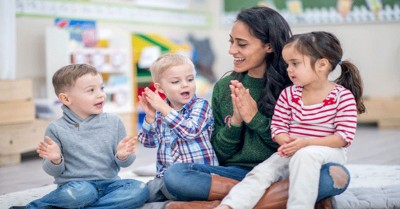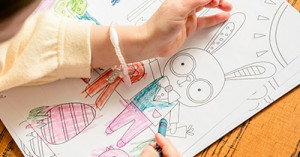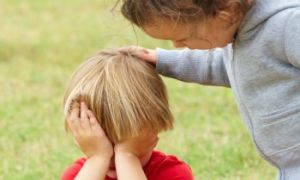Routines and rituals are an integral aspect of growing up. They not only teach young children the skills needed to function in the adult world but impart a measure of control over their immediate environment. The following article provides strategies for using rituals and routines in an early childhood setting.
Understand The Terms
Routines are common daily tasks that fall into repetitive, predictable patterns. So a typical routine for a young child at the centre or school might cover arrival, play, snack, activity, lunch, nap, a walk and departure. Details of the routine might vary across setting for example another centre might have the walk before naptime. But in general, routines remain similar for a development phase in a specific social context.
Rituals on the other hand are deliberate actions that signal transition points in the daily routine and/or anchor emotionally significant moments. Also, they are more individualistic as they are developed to help the needs of a particular child. So a teacher may encourage a young child to develop a goodbye ritual if the little one has a particularly hard time leaving a parent at the school gate.
They Support Self-regulation
Since early childhood is a time when the little ones are expected to pick up so many new skills – right from brushing and tying shoe laces to sharing with mates and eating lunch on your own – routines offer the comfort of the predictable and the familiar. Some ways you can use rituals and routines to support self-regulation are:
- Your school routine can follow up a period of intense focus with something more enjoyable like a self-directed nature walk.
- Rituals might help kids deal with turbulent moods and feelings; for example, incorporating breathing exercises later in the day might be a useful way of helping children relax when they are likely to feel tired and overwhelmed.
- Other rituals like shaking hands or giving hugs before and after a group activity may help children work better with their peers.
- If you are having trouble changing diapers on a toddler, playing peekaboo and singing nursery rhymes might make diaper changes more fun or them to cooperate.
- With familiar structures or processes in place, children are able to negotiate new stimuli and challenges with better control over their emotions.
Foster Independence
Routines help children know what comes next which in turn provides them the necessary support to do things on their own. So early on in the school year, explain to your young learners that they would be expected to keep their satchels in a certain place as soon as they enter the class or put away toys after playtime.
Similarly, rituals can be used to separate different parts of the day and help children to focus better. For example, as the child sings the familiar "Hello Song", he or she knows it is time to join their friends for a group activity. Such routine transitions and rituals impart a sense of control over the environment and prepare them for what comes next with lesser adult help.
Routines and rituals combine to create safe environments that foster bonds between young children and their carers. They foster cooperation between parents and their child's teacher and develop the relationship between parents and children.
Reference:
The Importance of Rituals and Traditions in Early Learning, Technology Rich Inquiry Based Research







 As an Educator in Australia, your pay rate falls under the Children’s Services Award 2010. This award states the minimum amount that an employer can
As an Educator in Australia, your pay rate falls under the Children’s Services Award 2010. This award states the minimum amount that an employer can When working as a qualified Early Childhood Teacher (with a university degree) within a service, your rate of pay will come from the Educational Services
When working as a qualified Early Childhood Teacher (with a university degree) within a service, your rate of pay will come from the Educational Services When working as a Diploma Qualified Educator your pay rate is from the Children's Services Award 2010. This Award states your minimum rate of pay
When working as a Diploma Qualified Educator your pay rate is from the Children's Services Award 2010. This Award states your minimum rate of pay When working as a Cert 3 Qualified Educator, your pay rate is from the Children's Services Award 2010. This Award states your minimum rate of
When working as a Cert 3 Qualified Educator, your pay rate is from the Children's Services Award 2010. This Award states your minimum rate of Educational Leaders play a crucial role in their early childhood service by ensuring that the educational program aligns with best practices and supports the holistic
Educational Leaders play a crucial role in their early childhood service by ensuring that the educational program aligns with best practices and supports the holistic In early childhood education and care, ratios are more than a technicality—they are a frontline safeguard. Every child deserves responsive supervision, emotional connection, and developmental
In early childhood education and care, ratios are more than a technicality—they are a frontline safeguard. Every child deserves responsive supervision, emotional connection, and developmental With the new national child safety reforms kicking in on 1 September 2025, early childhood services like yours have a real opportunity to lead the
With the new national child safety reforms kicking in on 1 September 2025, early childhood services like yours have a real opportunity to lead the Here’s a comprehensive Mobile Phone and Smart Watch Policy tailored for early childhood education and care (ECEC) services in Australia, aligned with the latest 2025
Here’s a comprehensive Mobile Phone and Smart Watch Policy tailored for early childhood education and care (ECEC) services in Australia, aligned with the latest 2025 The Sea of Fish Challenge is a national initiative that invites children, educators, families, and communities to create and display fish artworks as a symbol
The Sea of Fish Challenge is a national initiative that invites children, educators, families, and communities to create and display fish artworks as a symbol Across the early childhood education and care sector, educators are sounding the alarm: current staffing ratios are insufficient to deliver safe, meaningful, and developmentally appropriate
Across the early childhood education and care sector, educators are sounding the alarm: current staffing ratios are insufficient to deliver safe, meaningful, and developmentally appropriate


